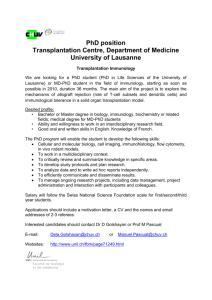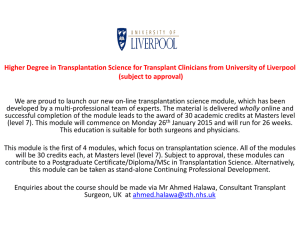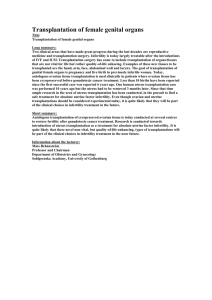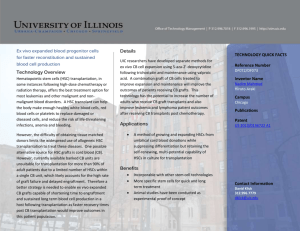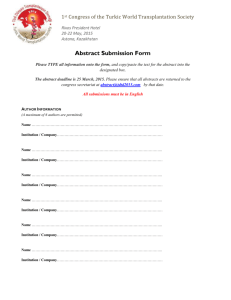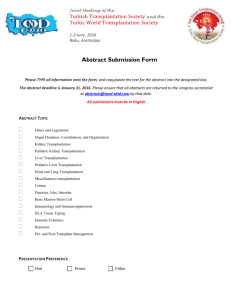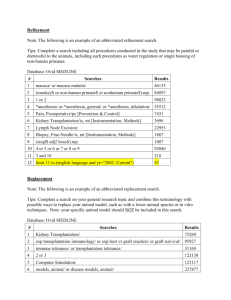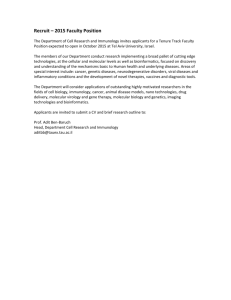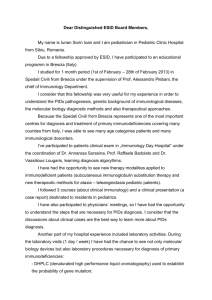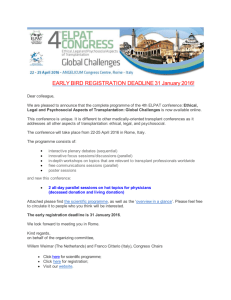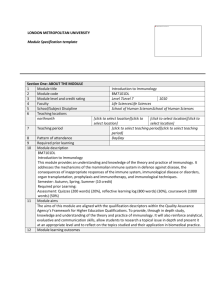Methodic_students_7
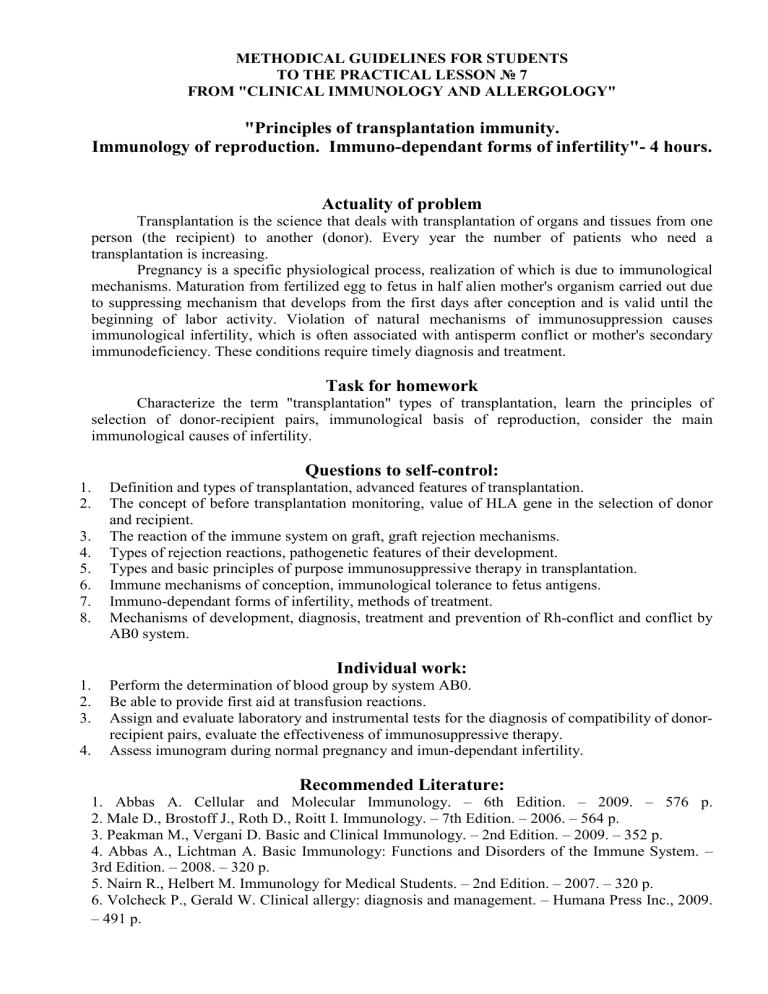
METHODICAL GUIDELINES FOR STUDENTS
TO THE PRACTICAL LESSON № 7
FROM "CLINICAL IMMUNOLOGY AND ALLERGOLOGY"
"Principles of transplantation immunity.
Immunology of reproduction. Immuno-dependant forms of infertility"- 4 hours.
Actuality of problem
Transplantation is the science that deals with transplantation of organs and tissues from one person (the recipient) to another (donor). Every year the number of patients who need a transplantation is increasing.
Pregnancy is a specific physiological process, realization of which is due to immunological mechanisms. Maturation from fertilized egg to fetus in half alien mother's organism carried out due to suppressing mechanism that develops from the first days after conception and is valid until the beginning of labor activity. Violation of natural mechanisms of immunosuppression causes immunological infertility, which is often associated with antisperm conflict or mother's secondary immunodeficiency. These conditions require timely diagnosis and treatment.
Task for homework
Characterize the term "transplantation" types of transplantation, learn the principles of selection of donor-recipient pairs, immunological basis of reproduction, consider the main immunological causes of infertility.
Questions to self-control:
1.
Definition and types of transplantation, advanced features of transplantation.
2.
The concept of before transplantation monitoring, value of HLA gene in the selection of donor and recipient.
3.
The reaction of the immune system on graft, graft rejection mechanisms.
4.
Types of rejection reactions, pathogenetic features of their development.
5.
Types and basic principles of purpose immunosuppressive therapy in transplantation.
6.
Immune mechanisms of conception, immunological tolerance to fetus antigens.
7.
Immuno-dependant forms of infertility, methods of treatment.
8.
Mechanisms of development, diagnosis, treatment and prevention of Rh-conflict and conflict by
AB0 system.
Individual work:
1.
Perform the determination of blood group by system AB0.
2.
Be able to provide first aid at transfusion reactions.
3.
Assign and evaluate laboratory and instrumental tests for the diagnosis of compatibility of donorrecipient pairs, evaluate the effectiveness of immunosuppressive therapy.
4.
Assess imunogram during normal pregnancy and imun-dependant infertility.
Recommended Literature:
1. Abbas A. Cellular and Molecular Immunology. – 6th Edition. – 2009. – 576 p.
2. Male D., Brostoff J., Roth D., Roitt I. Immunology. – 7th Edition. – 2006. – 564 p.
3. Peakman M., Vergani D. Basic and Clinical Immunology. – 2nd Edition. – 2009. – 352 p.
4. Abbas A., Lichtman A. Basic Immunology: Functions and Disorders of the Immune System. –
3rd Edition. – 2008. – 320 p.
5. Nairn R., Helbert M. Immunology for Medical Students. – 2nd Edition. – 2007. – 320 p.
6. Volcheck P., Gerald W. Clinical allergy: diagnosis and management. – Humana Press Inc., 2009.
– 491 p.
